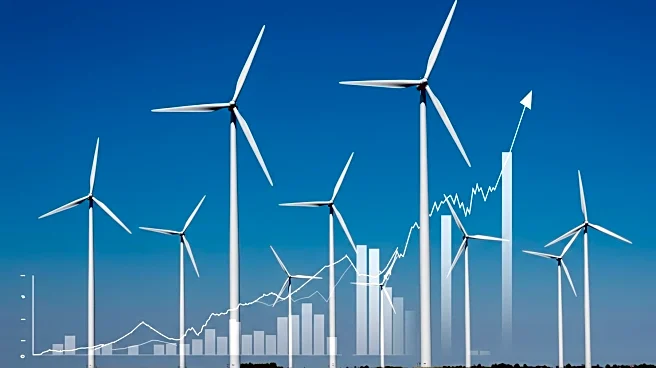What's Happening?
Electricity prices in Washington state have been increasing at a rate faster than the national average. In May 2024, the cost was 12.14 cents per kilowatt hour, which rose to 13.67 cents by May 2025, marking a 12.6% increase compared to the national average increase of 6.5%. Despite this rise, Washington's electricity costs remain below the national average of 17.47 cents per kilowatt hour. The increase is attributed to several factors, including efforts to upgrade the electric grid and meet the state's mandate to be carbon-neutral by 2030. Additionally, the growing demand from data centers, which require significant power, is contributing to the rising costs.
Why It's Important?
The rising electricity prices in Washington state have significant implications for both consumers and the energy sector. As utilities work towards carbon neutrality by 2030, the financial burden of infrastructure upgrades and clean energy investments is likely to be passed on to consumers. This could lead to higher utility bills for residents and businesses, potentially affecting economic activities and household budgets. The increased demand from data centers also highlights the need for sustainable energy solutions to support technological growth without exacerbating costs. The situation underscores the challenges of balancing environmental goals with economic impacts.
What's Next?
As Washington state continues to pursue its carbon-neutral goals, further increases in electricity prices may be expected. Utilities will need to navigate the complexities of upgrading infrastructure while managing costs. Stakeholders, including policymakers and energy companies, may need to explore innovative solutions to mitigate the financial impact on consumers. Public discussions and potential regulatory measures could emerge as the state seeks to balance environmental objectives with economic realities.
Beyond the Headlines
The push towards carbon neutrality in Washington state reflects broader national and global trends towards sustainable energy practices. This transition may prompt discussions on the ethical and economic responsibilities of energy providers and consumers. The role of data centers in driving energy demand also raises questions about the sustainability of digital infrastructure growth and its environmental footprint.









